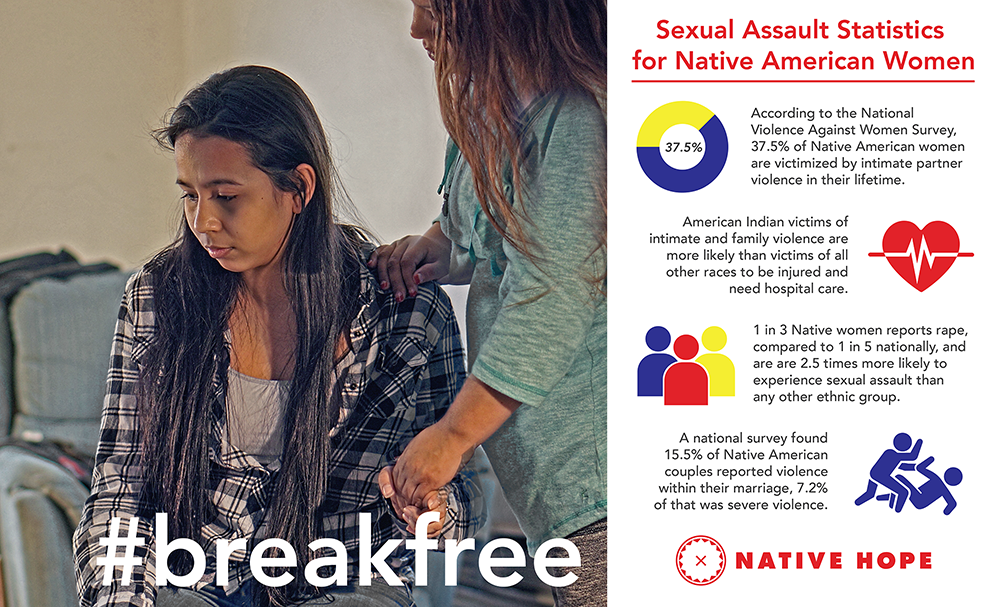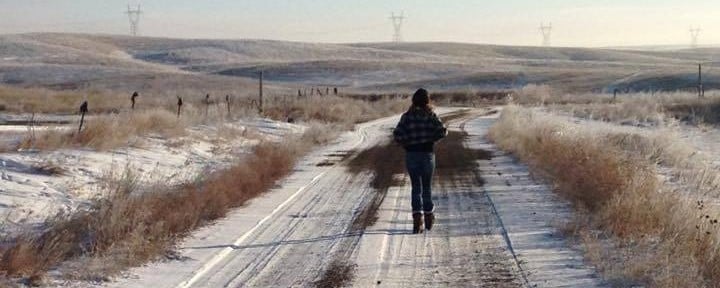Apr 10, 2023 | Native Hope
*The following post contains mature themes and references.
Imagine growing up in an environment where experiencing sexual assault or violence is statistically inevitable—a reality that shapes your childhood and shadows your future. For many Native American girls growing up on reservations, this unthinkable scenario is their truth.
Native American Women Are More Than a Statistic
It’s a sobering fact: Native American women are 2.5 times more likely to experience sexual assault than any other ethnic group in the U.S. This statistic represents lives and futures devastated by violence.
This crisis has persisted for far too long, and we are committed to raising awareness about the epidemic of sexual violence that plagues tribal communities today.
In an article published by The Guardian, Charon Asetoyer, CEO of the Native American Women’s Health Education Resource Center, recounted an unthinkable question posed by a young mother on the Yankton Sioux Reservation in Lake Andes, South Dakota:
“What do I tell my daughter when she is raped?”
Asetoyer, a member of the Comanche tribe, reflected on the moment. “Not if she’s raped, but when she’s raped. We’re aware of how bad the problem is in our reservation community, but when somebody puts it to you that way, you realize it’s even worse than you thought it was.”
One Woman's Story of Breaking Free
Jerri was just thirteen when her life changed forever.
Her mother often traveled for work, leaving Jerri to stay with her hunka family—friends considered relatives. One night, as she slept near her hunka sister, a male figure appeared in the darkness. That night, a teenage boy she trusted became her perpetrator.
The trauma was unbearable. She turned to alcohol and drugs to numb the pain, but the escape was temporary. At just thirteen, she attempted to take her own life, believing there was no way out of the despair.
Fortunately, her attempt was unsuccessful.
Jerri found solace in an unexpected place: her friends. Out of a group of ten girls, eight revealed they had also been sexually assaulted. That shared moment of vulnerability became a turning point.
“It was the best feeling—just knowing I was not alone,” Jerri says. “This was finally a moment of coping. We saved each other.”
Today, Jerri fights tirelessly to protect the women and children on her reservation from the harm she and her friends endured in silence.
Spreading Healing Through Stories
Jerri’s story is one of pain, resilience, and hope. It reminds us of the importance of creating safe spaces for Native girls and women to heal, share, and thrive.
At Native Hope, we believe in the power of storytelling to inspire change. By sharing the beautiful and the difficult truths of the Native American experience, we can foster understanding, spark action, and spread healing.
Join us in our mission to protect and empower Native communities. Together, we can break the cycle of violence and create a future of hope. #StorytellingHeals



COMMENTS